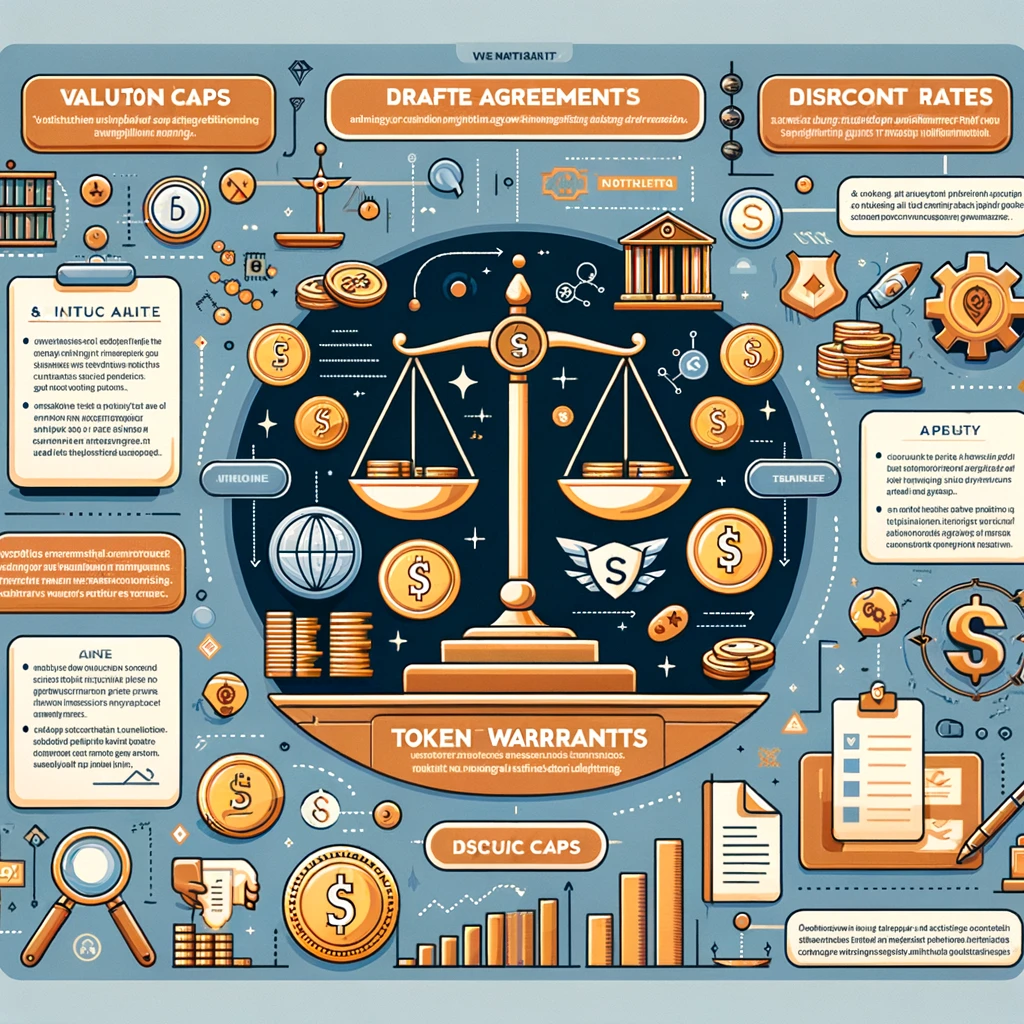Mastering SAFE Agreements and Token Warrants: A Comprehensive Guide
In the evolving landscape of startup financing and cryptocurrency investments, understanding the nuances of legal agreements becomes paramount. Two such instruments, the SAFE (Simple Agreement for Future Equity) agreement, and token warrants, have gained prominence. This comprehensive guide aims to elucidate the complexities of writing SAFE agreements and token warrants, integrating authoritative resources to bolster credibility and ensure a thorough understanding.

Understanding SAFE Agreements
A SAFE agreement is a financial contract used by startups to raise capital in their early stages. Unlike traditional equity rounds, a SAFE grants investors the right to future equity in the company under specific conditions, typically during a subsequent funding round or a liquidity event. Originating from Y Combinator in 2013, SAFE agreements have become a popular choice for startups looking to secure funding with fewer upfront negotiations.
For an in-depth exploration of SAFE agreements, Y Combinator provides a wealth of resources and templates that have set industry standards.
How to Write a SAFE Agreement
Crafting a SAFE agreement requires a clear understanding of its key components:
Valuation Cap: The maximum valuation at which an investor’s funds convert into equity, protecting the investor from dilution in future rounds.
Discount Rate: Offers investors a discounted price per share compared to future investors, rewarding early investment risks.
Provisions for Conversion: Specific scenarios that trigger the conversion of the SAFE into equity, such as equity financing, liquidity events, or dissolution.
MFN Clause (Most Favored Nation): Ensures early investors receive terms no less favorable than those offered in subsequent SAFEs or financing rounds.
For legal frameworks and guidelines on drafting financial agreements, the Securities and Exchange Commission (SEC) offers comprehensive insights into compliance and regulation.
Token Warrants: Bridging Crypto and Traditional Finance
Token warrants are innovative financial instruments that grant the holder the right, but not the obligation, to buy digital tokens at a predetermined price before the warrant expires. This mechanism is increasingly used in the realm of blockchain and cryptocurrency, providing a structured way to invest in new digital assets.

Create & Review Your Contracts 10x Quality and Ease
Lawyer-level AI handles all your contract needs, with real lawyers providing safeguarding support

How to Write a Token Warrant
Writing a token warrant involves specifying terms that align with both traditional warrant structures and the unique aspects of digital currencies:
Exercise Price: The price at which the warrant holder can purchase the tokens.
Expiration Date: The deadline by which the warrant must be exercised.
Underlying Asset: Details of the digital token or cryptocurrency the warrant pertains to.
Conversion Ratio: The number of tokens that each warrant entitles the holder to purchase.
For understanding the legalities surrounding digital currencies and assets, Cornell Law School’s Legal Information Institute provides valuable resources on financial law as it pertains to emerging technologies.
Combining SAFE Agreements and Token Warrants in Investment Strategies
Integrating SAFE agreements with token warrants presents a novel approach for startups and investors navigating the intersection of traditional equity financing and the burgeoning field of digital assets. This hybrid model can offer the flexibility of SAFE agreements while tapping into the potential high-growth market of cryptocurrencies through token warrants.
Best Practices for Drafting Hybrid Agreements
Clarity and Compliance: Ensure all terms are clearly defined and comply with current regulations governing securities and digital assets.
Investor Protections: Incorporate provisions that safeguard investor interests, such as anti-dilution clauses and rights to future token offerings.
Flexibility for Future Rounds: Allow room for adjustments in future financing rounds or token sales, accommodating the evolving nature of the startup and the digital asset market.
Harvard University’s Berkman Klein Center for Internet & Society offers insights into the legal challenges and considerations at the convergence of technology and law, providing a valuable perspective for drafting modern financial agreements.
Conclusion
The integration of SAFE agreements and token warrants into startup financing and investment portfolios represents a forward-thinking blend of traditional equity mechanisms and innovative digital asset opportunities. By adhering to best practices, understanding regulatory requirements, and leveraging authoritative resources, startups and investors can navigate these complex instruments with confidence.
For additional information and guidance on financial instruments, regulatory compliance, and investment strategies, entities like the Financial Industry Regulatory Authority (FINRA) and academic publications on Wikipedia serve as essential resources for both novices and seasoned professionals in the field.

